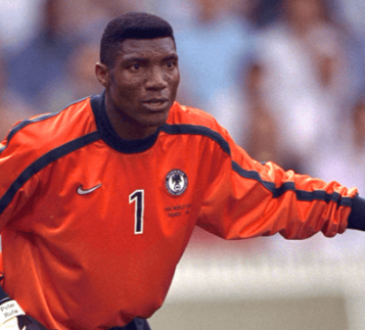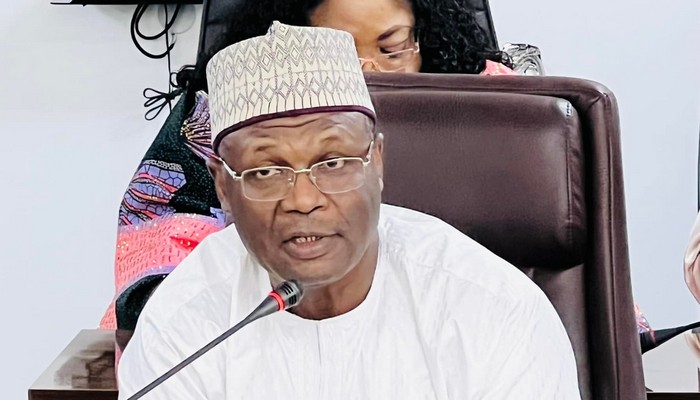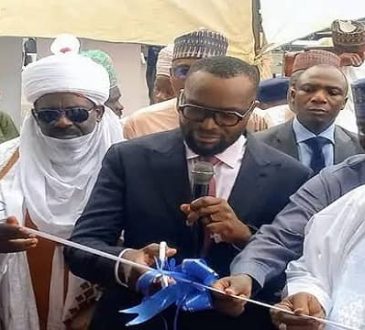Educational certificate should not be criterion for persons with intellectual disability

By Okuru Innocent
Over one million people, or 15 per cent of the world’s population, experience a form of disability. Persons with disabilities are often discriminated against and stigmatized as people tend to see only their challenges, not their abilities. Thus, they are denied their fundamental rights, including the right to life, education, work, and social and economic inclusion. The 2030 Agenda for Sustainable Development clearly states that disability cannot be the reason or criteria for lack of access to development programming and the realization of human rights.
Persons with a learning disability have unique skills and abilities, and they can be categorized into Mathematics, calendar calculations, Art, Music, and mechanical skills. This category also applies to persons with Down Syndrome as they, like their developing peers, have some unique talents/strengths that make them unique and special.
These talents range from poetry, creative art, or even reading other people’s emotions to having photographic memory; fantastic memory for people, places, and past events; high capacity for empathy and social understanding, a natural adeptness with technologies.
However, this does not negate the fact that they sometimes have limitations, but it does not define who they are or their ability to learn and strive in their environments. Nevertheless, persons in Nigeria with intellectual disabilities have broken the stereotype belief that they cannot persist in their given environment or excel amidst their disabilities.
Tobiloba Ajayi is a Nigerian lawyer, a disability rights advocate, and a published author. She has Cerebral Palsy and has been able to live beyond her limitations. She is the founder of the Foundation “Let Cerebral Palsy Kids Learn.”
Chukwuemeka Ahubelem has a special gift on calendar calculations as he can tell the days of a week of any date without looking at the calendar. He is a teacher in Champion Vocational Centre and has participated in the Special Olympics, where he received several medals and awards for his excellence as a hero of Autism.
Tayo Yahayah is a young adult with Down Syndrome. However, this was not a barrier to his abilities and talents as he owns and runs a barbing shop and can equally drive a car.
Solomon Omere is a self-advocate and a staff of the Down Syndrome Foundation, Nigeria. He was featured in a 13-week Super story series and was the lead character of the drama series GODWIN by Wale Adenuga Productions. These series are still present on YouTube.
Regardless of disability status, everyone possesses unique talents and abilities; thus, they deserve the right to play active roles in society. Likewise, persons with disabilities have special skills to do a particular job; therefore, educational qualification shouldn’t be a criterion for payment.
For instance, equal remuneration and treatment should be rendered if an individual with a disability and without a disability are on the same level of employment and doing the same job. Persons with disability (PWD) should not be deprived of equal pay because they lack the required educational qualification for the job.
Adherence to this principle of inclusion and fair treatment makes them feel included and safe in the community where they live. The most significant benefit of community integration for people with disabilities is the opportunity to be part of their community indeed. Therefore, looking beyond their disability, focusing on their skills, and employing them in organizations in the community where they live, makes them feel entirely accepted and not discriminated against or excluded.
Here are some tips for appreciating the talents of persons with disabilities, emphasizing intellectual disabilities.
*Focus on the person’s abilities. Do not focus on a person’s disability that you don’t see the person.”
*Be respectful.
*Show support for their talents. Early intervention/education and social integration help them build on their talent through early intervention/education and social integration.
*Be amazed at who they are instead of” what we see.”
*Always put yourself in their shoes. Try to be emphatic about their pains and feelings.
*Provide fair equality of opportunity and treatment.
In conclusion, persons with intellectual disabilities can work like every other person. Thus, government and organizations should take great pride in actively promoting equal opportunities and treatment for everyone, including persons with intellectual disabilities, in their workplaces.






